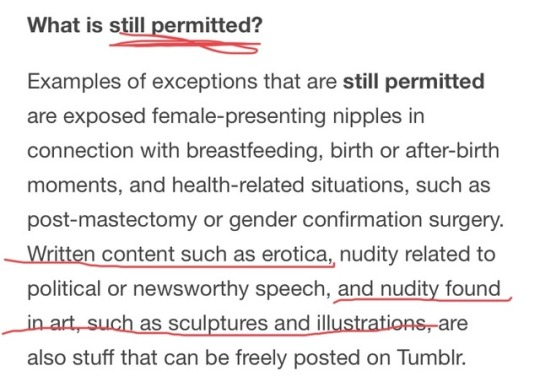Articles of Interest is a bimonthly post on things that I found on the internet that are interesting. The intent is for there to be 2-3 weeks of “lag” time between when I read the articles and when I review them, for hype to die down on any given hot topic. This is why this post is being published near the end of February. Featured articles aren’t necessarily published in the titular two-month period; that’s just when I read the pieces for the first time.
I’m going to do something slightly different for this edition. Instead of looking at the articles that are the most “interesting” per se, I’m going to use them mostly as a proxy to talk about what’s going on in my personal life. Cool? Cool.
Gwern on nicotine
When someone or something says that “nicotine” is harmful and you drill down to the original references for their claims, the references often turn out to actually be talking about tobacco rather than nicotine gums or patches… Technically, nicotine is not significantly addictive, as nicotine administered alone does not produce significant reinforcing properties.
This is actually a piece that I first read in November, but to be fair I’ve reread it half a dozen times between December and January. For a while now, I’ve been idly thinking about experimenting with nicotine for a) being a more alert and competent student in 8:30 classes and b) positive habit formation, and this is the post that made me start to do more research on it in earnest. I won’t bother summarizing all the interesting things about nicotine here because it’s not worth the effort when Gwern’s writeup is so stellar. But here are some more personal insights:
Even though now that I’ve done enough research to be entirely convinced that nicotine lozenges are incredibly safe, and resolved to take them in an incredibly responsible and safe manner to reduce the already minuscule chance of addiction (never two days in a row, maximum 3 times a week), I still haven’t worked up the courage to buy them on Amazon. This is weird, because I didn’t have nearly the same amount of reservations when it came to starting caffeine, alcohol, and more exotic substances. I think that this is the case because of two main reasons.
One, the anti-tobacco lobby did a pretty good job. What can I say, the experience of having to design a poorly researched anti-smoking poster in fourth grade must have really stuck with me. The second thing is that tobacco is low-status to someone in my social class, moreso than coffee, alcohol, and weed. I remember getting super defensive about trying it out when I first broached the subject with my friend group. I literally think that some of them would have reacted more positively if I told them that I was contemplating starting up a coke habit. And, well, status and class is a very powerful reinforcer of norms, who would have thought.
How To Build a Lumenator (And some other articles on winter illumination)
Once upon a time, a friend was sad. Specifically, they had seasonal affective disorder. They tried to fix it by adding lights to their room during the winter.It didn’t work.They tried adding a LOT of light.It worked.They called the giant bundle of lights they assembled a Luminator. Other people wondered how they, too, might summon a sun into their living room. The task was not exactly complicated or hard, but it was a little confusing and inconvenient. Instructions were passed around by word of mouth, and individuals cobbled together luminators in their own homes. Some of them has seasonal affective disorder, and some just liked their rooms to feel line sunshine all the time.Bit by bit, people’s lives grew brighter.
Aaaaaand, now I have a lumenator!

It pumps out around 10,000 lumens, and it’s bright enough that when you turn it on in the middle of the day with the windows open, it still manages to make the room significantly brighter. I’ve had it for a month now and while I can’t say for sure whether or not it’s made my SAD go away, it does make me ridiculously happy and I will enthusiastically LUMENATE the rest of my house bit by bit.
I first came across this concept in Eliezer Yudowsky’s book Inadequate Inequilibra, which I highly recommend.
[NSFW – cw for female breasts] Posts wrongly purged by Tumblr’s NSFW ban, like this one
Another one:



I’ve been collecting these posts as they come up with the intent of writing a post-mortem after the dust settles, and I’m up to 30ish. I’m very glad that I did, because there were some important pieces and criticisms that are now gone.
There were shitposts, and people talking about their mixed feelings for this platform that they grew up and into themselves on, and informative pieces on the broader implications and why tumblr did this in the first place.
I’ll start on that soon, it’s been a while since I did any sort of interesting longform.
“Where’s My Cut?”: On Unpaid Emotional Labor, Jess Zimmerman
We are told frequently that women are more intuitive, more empathetic, more innately willing and able to offer succor and advice. How convenient that this cultural construct gives men an excuse to be emotionally lazy. How convenient that it casts feelings-based work as “an internal need, an aspiration, supposedly coming from the depths of our female character.”…Housework is not work. Sex work is not work. Emotional work is not work. Why? Because they don’t take effort? No, because women are supposed to provide them uncompensated, out of the goodness of our hearts.
Since I’ve moved back to Waterloo for my school term, I’ve started hosting some bi-weekly salons to try to mitigate the damage academia is doing to my sense of intellectual curiosity. We started experimenting with doing readings before the meetups and this is the one that I picked to go along with our topic, emotional labour. In a more ideal universe I would have assigned the metafilter thread instead, but we’re all tired students and no one really has the time for 50 additional pages of readings.
I was thinking that everyone would agree with Zimmerman at the beginning of the session and I could then lead people to a more nuanced “actually maybe what Zimmerman is promoting also isn’t that great” state, but what ended up happening was that people were dunking on the article right away. At first I felt a bit put out by this because oh no I couldn’t flaunt my intellectual superiority, but honestly being surrounded by really smart and critical people is cool af, so I got over it pretty fast and now I basically don’t come to salon with any sort of agenda in mind and I just bask in everyone’s conversation. It’s probably an even better thing for my mental health than the lumenators are. If any of my salon members are reading this, sorry for thinking that you were dumber than you actually were 🙁
[NSFW – cw for blood, and graphic bodily harm] Welcome to Hell World
In January of 2005 in the northern Iraqi town of Tal Afar, Samar, five years old at the time, was riding in the back seat of her parents’ car as they returned from bringing her young brother to the hospital. It was getting dark, and nearing curfew, and her father, likely aware of this, was driving faster than normal. Fearing that the driver was a suicide bomber, an army patrol in the area that evening were given permission to open fire and so they did because that is what army patrols do.
I understand if based on the excerpt you already feel tired and don’t want to click through; if I didn’t know the author I would feel the same way. Luke O’Neil’s newsletter is always gut-wrenching and never fails to ruin my day, but I never fail to click on it the instant in appears in my mailbox. He’s got a writing style that hooks me in the belly and he’s good at humanizing the people who aren’t being humanized enough, cutting through the bullshittier parts of the culture war woven by those in privileged coastal enclaves to tell you about the blood and the sweat and the suffering of those actally being crushed by what’s happening in the world today.
If I had to choose only one newsletter to subscribe to, hell world would be it, and I’m so happy that I’ve found it even though it only ever makes me sad.
Thus concludes this ed of articles of interest, hopefully I’ll have a “real” blog post up before the next one hits!
